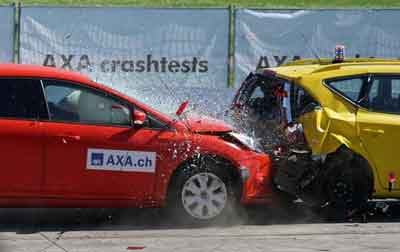Head-on collisions can occur anytime you are driving. However, when they happen, it is always hard to determine fault and thus makes it difficult for the involved parties to seek relevant legal justice.
Head-on collisions can be scary and can leave people dead, slightly injured, or severely injured with permanent disabilities like broken arms and limbs.
If you have been involved in a head-on collision or your loved one has, you can recover costs associated with wrongful deaths and injuries if you understand the process of determining fault.
For this to happen, here are the important things that you need to know about head-on collisions:
How Does It Occur?
A head-on collision is also known as a frontal crash and it can occur when cars that are driving in opposite directions hit one another front to front. Head-on collisions often cause severe injuries and fatalities especially to the drivers and at ties to the passengers in the vehicles at the time of the accident.
However, based on the information at joyelawfirm.com/2019/05/front-seat-may-be-safer-in-a-head-on-collision/ the impact of frontal crashes can differ with where a person is seated at the time of the crash.
Seating at the front of the car can lower your chances of having severe injuries especially if you have a safety belt on you. Passengers on the back seats during front crashes tend to suffer more severe injuries because of the crash’s impact.
Likewise, frontal crashes are also common in rural areas and they are often more fatal than the head-on collisions which occur in urban areas.
The Causes of Head-on Collisions
While frontal crashes can be caused by the carelessness of drivers, they can also be caused by mechanical failures of the vehicles involved. Such failures as brake failure and power steering outages too can cause vehicles to engage in front crashes.
Head-on collisions can also occur when one of the drivers is on the wrong side of the road. It could be that the driver on the wrong side of the road is drunk or distracted by such things as texting or calling on the phone while driving.
Drowsy driving, unsafe passing, and storytelling whole driving can also disrupt the driver’s attention and make him/her cause a head-on collision. To avoid front crashes, avoid driving when you are too tired, and, avoid using your phone while driving as you can easily drift away from your lane and hit another car.
Fault Establishment In A Head-on Collision
In case you want compensation for damages caused to you or your car during a head-on collision, the insurance company will be interested n knowing whether it was you or the other driver that was at fault.
Furthermore, the impact of a front crash can swap the involved cars to different directions making it difficult to physically tell which car was on the wrong lane and to determine how the crash occurred.
However, your personal injury attorney or an accident assessment specialist can be better suited to determine who is at fault in a head-on collision. You must therefore involve an injury attorney, the police, or accident specialists by letting them know you have been involved in a car crash. They can help clear things up.
Remember that the person at fault shall be required by law to pay for the damages you suffer if you survive the accident or to your relatives if you die in an accident. The determination of fault is therefore the pinnacle of compensation in head-on collisions.
If you are at fault in the accident, therefore, your insurance company should pay your claims. However, before the other driver is compensated, the authorities involved must also determine whether he was also at fault.
Note that the burden of proof in a front crash is with the injured driver and survivors. This means that these affected persons are legible to determine what the defendant who is the driver at fault owes them for damages and injuries.
What Influences Who Is At Fault
You can be at fault if you fail to provide the duty of care you have. You are required to protect your fellow drivers and the passengers you carry in your vehicle. You should therefore be sober, alert, energized and you must pay attention while driving.
Anytime you are under the influence of alcohol and other drugs while driving then you are breaching the duty of care bestowed on you by the law. When as the driver you are negligent and engage in conduct that is not expected of you then you can also be at fault.
While you claim compensation, you as the plaintiff must prove that the other driver was at fault otherwise you will not be compensated.
Head-on collisions can be deadly if they occur. They can be caused by human error or mechanical damages. Determination of fault is the peak of a head-on collision as it can determine whether or not you shall be compensated for damages.






No Comments